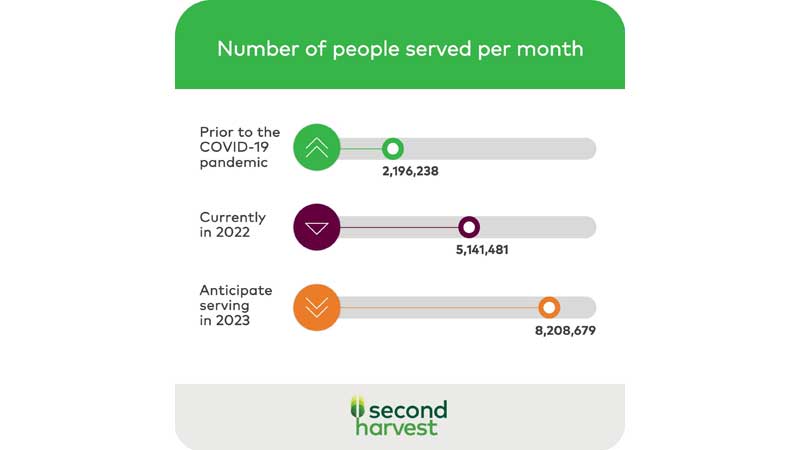🥘🥡 Second Harvest releases new research: Canada Needs a New Year's Resolution for Food Insecurity
Sunday, 22 January 2023 06:40.PM
Second Harvest, Canada's largest food rescue organization, today released new research examining the anticipated need for food charity in Canada in 2023. The research, Canada Needs a New Year's Resolution for Food Insecurity, found that non-profit food programs that hand out food to vulnerable Canadians forecast the number of people they serve to grow by 60% in 2023, on top of 134% growth in 2022.
"It is a new year, but there is no resolution in sight for Canada's food insecurity problem," said Lori Nikkel, CEO of Second Harvest. "The end of Covid supports, food inflation and flat wages are all contributing to increased reliance on food charity. Without systemic change, food insecurity will only get worse in Canada."
The survey measures how the charitable food sector, which includes Food Banks, faith-based organizations, schools and community groups, must adapt to changes in demand in the coming year. More than 1300 organizations across the country were surveyed at the end of 2022 about the extent of their charitable food programs and to uncover what they anticipate their needs to be in the future.
Some key findings from the survey include:
• NFP's anticipate adding 30% more food programs in 2023, increasing the average number of days per week they hand out free food from 3.7 to 4.2
• 39% of NFPs say they'll need 50 percent or more perishable food next year to meet the demand
• 44% of NFPs say they'll need 50 percent or more non-perishable food next year to meet demand
• 9% said they need more food only
• 21% said they need more funding only
• 70% said they need both food and funding
Not for profits that completed the survey anticipated a total budget shortfall of $94 million to meet next years demand, an average of $70K per organization. "In the short-term, NFPs need financial support because surging demand is outpacing supply," said Suman Roy, CEO of the Scarborough Food Security Initiative, noting that since the pandemic, the number of non-profit food programs in Canada increased by 214%, and an additional 60% is expected in 2023.
"Access to food is a human right, not a privilege," said Nikkel. "More charitable food programs will not decrease food insecurity in Canada. More food charity is only treating the problem, not finding a solution," Nikkel said, "In the long-term, individuals need government support like income regulation that's indexed to inflation and solutions for affordable housing so that non-profit food programs are not needed in the first place."
SOURCE: Second Harvest
- Related materials:
